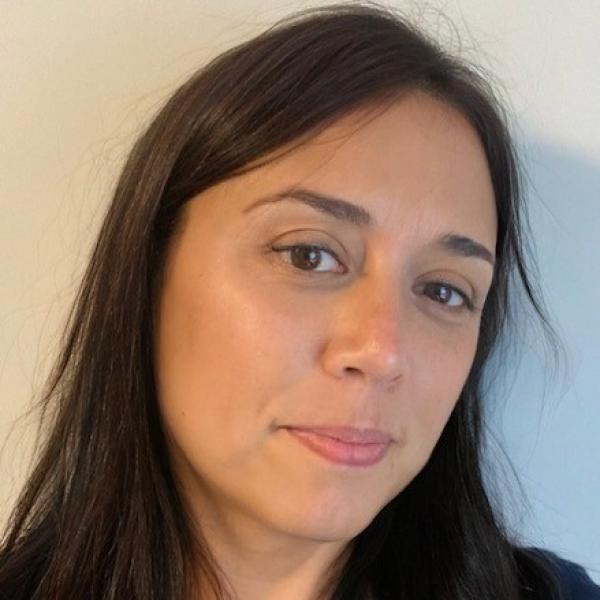Teresa's Story
“Definitely get any lumps that you find checked by your GP. I’m sure that if I didn’t go to the GP when I did, if I’d waited a few months, things could’ve turned out extremely differently for me.”

Teresa Hanniffy, 50, who is originally from Italy but lives in Mullingar, Co. Westmeath, was diagnosed with breast cancer in 2019. The mother-of-two found a lump in one of her breasts and initially dismissed it, as she got unrelated digestive problems checked out earlier that year that all came back clear.
“When I found the lump, I thought I had to stop imagining things, that I had to remind myself I was fine,” says Teresa. “Then I started thinking that no one else in my immediate family had breast cancer, so why would I? I thought I was just imagining things.
“My mam had been checked before many times, but all her mammograms had never shown any tumours, so I was thinking that would be the same for me.”
The next day, Teresa couldn’t shake the sense that something could be wrong, so she went to see her GP.
“I still felt a sense of doubt, so I decided to get it checked,” she says. “I went to my GP, she did an examination and tried to keep me calm because I explained to her that I was a bit nervous."
“She said she could definitely feel something, and she sent a referral to the Breast Clinic in the Mater. She said it could be a cyst, but she couldn’t tell me anything for certain – but I latched on to her saying it could be a cyst.”
In early July, Teresa went to the Breast Clinic in the Mater in Dublin where she had a mammogram. They asked her to wait in the waiting room, then sent her for a triple assessment.
“During the mammogram, I noticed they were going over and over the side of my breast where the lump was. They didn’t say anything to me about it, but I could see they were looking and looking at whatever was there. Then they asked me to wait in the waiting room.
“I was trying to be positive, but in my head, I had a feeling there was something wrong. They sent me for a triple assessment. I was thinking the whole time that something must be wrong, because they were doing all of these other checks.”
After her triple assessment, Teresa was asked to wait in the waiting room. Shortly afterwards, she was brought into a room by a doctor and a nurse who told her what the tests had shown.
“They said what I didn’t want to hear – that I had breast cancer,” says Teresa. “They said that the biopsy they took that day had been sent away for testing, but by looking at my scans they were almost certain that I had a tumour.
“It felt surreal. It’s like you’re in a different room, and the doctor and nurse are actors in a scene. It’s a bit of a shock. My reaction was to think of my family, of my two children, Sara and Luca, who were nine and seven at the time. Straight away, it felt like there was something inside of me saying I had to fight, I couldn’t leave my children.”

The tests later revealed that Teresa had stage 3 breast cancer and that the tumour had just started to spread to the lymph nodes under her arm. She underwent an operation at the Mater Hospital to remove the breast cancer and took up the opportunity to donate her tumour to scientific research. This was followed by chemotherapy and radiotherapy.
“It was worse for me when the chemo ended near Christmas, and I had a break until starting radiotherapy the following February,” says Teresa. “That was the toughest time, because I relied so much on the reassurance of the doctors and nurses when I was going through chemotherapy.
“You’re a cancer patient, and you get the support of the doctors and nurses, and you see them regularly, but then you have to transition out of that.”
Throughout her experience, Teresa was supported by her husband Conor and his wider family, her family in Italy, her friends and her workmates. They were an important source of comfort to help Teresa get through her diagnosis and treatment, but she found it hard when she finished treatment.
“When you finish treatment, you feel like there’s a little bit of well-meaning pressure from other people for you to go back to work,” says Teresa, who works as a food safety inspector, “and get back to doing things because you don’t have treatment or as many hospital appointments anymore. But I wasn’t ready to go back to work once I finished treatment. I needed some more time to be able to feel like myself again.
“This is an important time also to seek support, not just while having the cancer treatments."
"I reached out regularly to good friends who had been through something similar before and who were able with their positive stories to help me to stay grounded while recovering. Also support centres are there for this purpose.”

Teresa is now doing well and was relieved when she passed the five-year mark since her cancer diagnosis. She still goes for scans, which have all come back clear.
“It’s a thing of the past for me now,” says Teresa. “I still go for check-ups, but I’m definitely proof that you can still have a good life after a cancer diagnosis. You’ll feel like a different person, because you’ve managed to get through something that was initially terrifying, but you did it and you realised there is light at the end of the tunnel.”

